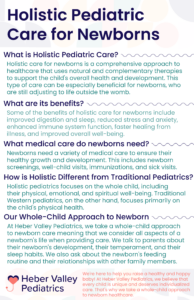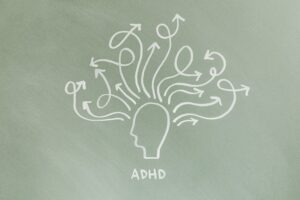As Easter approaches, we know many parents are looking for ways to make the holiday inclusive and enjoyable for children with special needs. The team at Heber Valley Pediatrics understands the importance of inclusion and celebration for every child, regardless of ability.
Heber Valley Pediatrics is a behavioral health and pediatric care center located in Heber City, Utah. We believe that every child is unique and deserves personalized care. That’s why we offer a wide range of services, from wellness checkups to immunizations to specialty care. We also believe that every child deserves the opportunity to participate in popular holiday festivities. We’ve come up with some ideas for adapting traditional Easter activities to make them accessible and fun for all.
Why Inclusion Matters: Children with Disabilities and Special Needs
Sadly, children with disabilities and special needs are often excluded or face challenges while participating in community events and celebrations. This can be due to a variety of factors:
- Physical Barriers: Many venues and activities may not be fully accessible for children who use wheelchairs or mobility aids.
- Sensory Sensitivities: Bright lights, loud noises, and crowds can be overwhelming for children with sensory sensitivities.
- Lack of Understanding: Event organizers and other participants may not be aware of how to interact with and support children with disabilities.
This exclusion can lead to feelings of isolation and disappointment for children with special needs and their families. That’s why it’s important to proactively design inclusive celebrations, ensuring that all children have the opportunity to experience the joy and fellowship of Easter.
Embracing the Easter Egg Hunt
Easter egg hunts are a classic, but consider these variations for children with special needs:
- Visibility and Accessibility:
- Use large, brightly colored eggs or even glow-in-the-dark eggs for children with visual impairments or for hunts held during dusk.
- Opt for plastic eggs instead of heavier chocolate ones, especially for younger children or those with hand strength limitations.
- Consider designating a specific hunting area, clear of obstacles, for children with mobility challenges.
- Alternatively, create a designated “finding zone” for children who may not be comfortable searching a larger area.
- Sensory Experience:
- Create a “sensory hunt” with eggs filled with textured materials like beans, rice, small toys, or even scented objects for an additional layer of engagement.
- If using sound-making objects, be mindful of noise sensitivity and offer a variety of options to cater to different preferences.
- Adapting the Rules:
- For children with mobility limitations, consider hiding eggs at reachable heights or placing them in baskets or containers for easier retrieval.
- Encourage teamwork between siblings or friends to help with searching and collecting eggs.
Creative Easter Crafting
From our specialists in pediatric care, we’d recommend getting those creative juices flowing with accessible Easter crafts:
- Festive Decorations:
- Decorate foam eggs with stickers of various shapes and sizes, catering to different fine motor skills.
- Use glitter glue, puffy paint, or markers that are easy to grip for children with limited hand strength.
- Offer pre-cut shapes or stencils for children who enjoy tracing or following patterns.
- Adaptive Art:
- Provide adaptive brushes with thicker handles or built-up grips for easier holding.
- Offer finger paints, stamps, or sponges for alternative painting methods that require less hand strength.
- Explore using edible paints made with water and food coloring for a safe and sensory-rich experience.
- Tactile Creations:
- Make textured Easter cards with materials like sandpaper, cotton balls, fabric scraps, or even dried beans glued onto construction paper.
- Encourage experimentation with different textures and materials to provide a unique sensory experience. Our pediatric care team recommends this for children with disabilities, as this can be a way of engaging your child.
Sharing the Easter Story
Bring the story of Easter to life with interactive and engaging experiences:
- Interactive Stations:
- Create multiple stations representing different parts of the Easter story.
- Include items like palm branches and a replica cross for children to touch and explore.
- Offer scented oils like lavender for calmness or cinnamon for warmth, representing different aspects of the story.
- Multi-Sensory Engagement:
- Use visual aids like picture books with simple and clear illustrations.
- Incorporate tactile objects like plush toys representing characters or props from the story.
- Play simple sounds or music to enhance the storytelling experience, being mindful of volume and potential sensitivities.
Pediatric Care Approved Fun and Inclusive Games
Our pediatric care team has adapted these traditional Easter games for everyone to enjoy:
- Adapted Egg Roll:
- Use oversized spoons or gripping aids to help children with limited hand strength or coordination participate in the egg roll.
- Consider using a smooth surface instead of grass to make rolling easier for children who use wheelchairs or other mobility aids.
- Seated Egg Toss:
- Play a gentler version of the egg toss using soft, lightweight balls that are safe for throwing and catching.
- Set up the game in a seated position for children who are unable to stand or walk easily.
- Emphasize teamwork and cooperation by encouraging children to toss and catch the ball together.
- Inclusive Activities:
- Instead of competitive games, focus on activities that promote participation and collaboration.
- Consider activities like decorating Easter cookies or creating an Easter basket filled with non-breakable treats and toys.
Fostering Community Connection
Seek out inclusive Easter events in your community:
- Local Organizations:
- Many churches and organizations go the extra mile to host disability-friendly Easter celebrations.
- These events often feature accessible venues with ramps and wide doorways, sensory-friendly activities, and trained volunteers who understand the unique needs of children with disabilities.
- Look for events that offer specific information about accessibility features and available sensory adaptations.
- Building Belonging:
- Participating in these events helps children with special needs feel included and connected to their community. Seeing other children with similar abilities participating and enjoying themselves can foster a sense of belonging and acceptance.
Heber Valley Pediatrics: Your Partner in Inclusive Celebrations
Heber Valley Pediatrics believes that every child deserves to experience the joy of Easter. By adapting activities and seeking inclusive events, you can create a celebration that truly embraces and empowers your child. We want to be a resource for parents on this journey, so don’t hesitate to contact us:
- Consultation: Schedule an appointment to discuss specific strategies and adaptations that cater to your child’s unique needs.
- Community Resources: We can help you connect with local organizations and events that offer inclusive Easter celebrations.
- Ongoing Support: Our team of experienced professionals is always here to answer your questions and provide support throughout the year.
Providing Comprehensive Pediatric Care for Children of All Abilities
At Heber Valley Pediatrics, we understand that every child is unique, and children with special needs have specific healthcare requirements. Our team of experienced and compassionate professionals is dedicated to providing comprehensive care for children of all abilities, from newborns to adolescents. We offer a wide range of services, including:
- Wellness Checkups: Regular checkups to monitor growth and development, address health concerns, and ensure children are up-to-date on vaccinations.
- Developmental Disorders: Assessing children’s development and providing necessary referrals for interventions like speech therapy or occupational therapy.
- Management of chronic conditions: Collaborating with families and specialists to manage conditions like ADHD, autism spectrum disorder, and other chronic health concerns.
- Behavioral Health Evaluations: Providing resources and guidance for families navigating sensory sensitivities in their children.
- Anxiety and ADHD Support: Working collaboratively with other healthcare professionals, therapists, and educators to ensure a coordinated approach to your child’s care.
We are committed to creating a welcoming and inclusive environment where every child and family feels supported and respected. If you have any questions or concerns about your child’s health, please don’t hesitate to contact us. We are here to partner with you in ensuring your child reaches their full potential. Happy Easter from the pediatric care team at Heber Valley Pediatrics! We wish you and your family a joyful and inclusive celebration.





